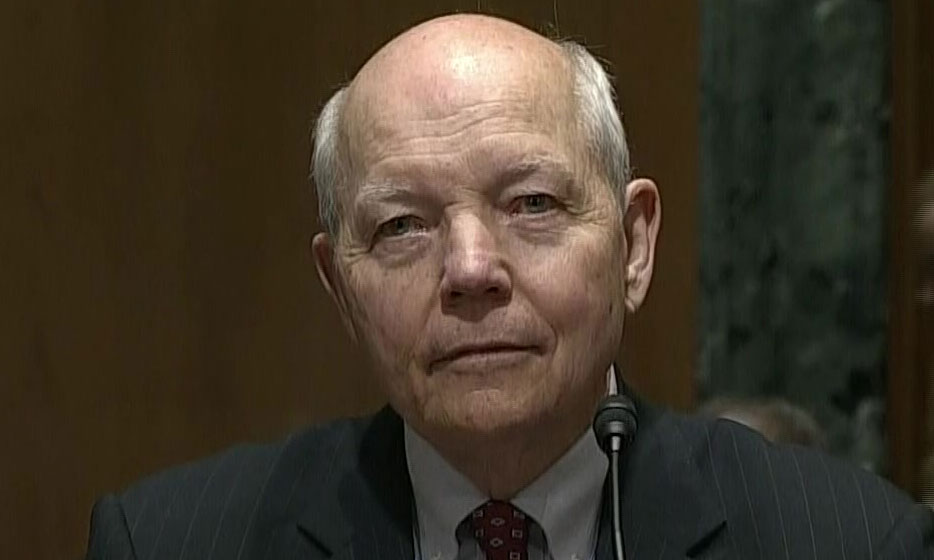
At Hearing, IRS Nominee Faces Questions on Tax-Exempt Political Groups
Appearing before the Senate Finance Committee, the Obama administration’s choice to head the IRS said he would cooperate with the committee’s ongoing investigation into the tax treatment of 501(c)(4) political groups.
John Koskinen, the Obama administration’s pick to head the Internal Revenue Service (IRS), said during a two-day confirmation hearing before the Senate Finance Committee this week that he would work to restore public trust in the agency and improve employee morale and performance.
Committee Chairman Max Baucus (D-MT) said he will hold a vote on Koskinen’s nomination December 13, along with a vote on Sarah Bloom Raskin, who has been nominated to be deputy secretary of the Treasury Department. If confirmed, Koskinen would serve a five-year term. He would replace acting IRS Commissioner Daniel Werfel, who was brought in earlier this year to help steer the agency through a scandal involving the targeting of conservative political groups seeking tax-exempt status.
In every area of the IRS, taxpayers need to be confident that they will be treated fairly, no matter what their background or their affiliations.
Koskinen has a history of helping large organizations undergoing significant financial and management challenges, including a stint as chairman of Freddie Mac from 2008 to 2011 at the height of the last recession. Koskinen said at the hearing that the IRS is currently challenged with a budget that has declined significantly since 2010 and management problems that have shaken public trust in the agency.
“In every area of the IRS, taxpayers need to be confident that they will be treated fairly, no matter what their background or their affiliations,” Koskinen said, referring to the scandal earlier this year. “Public trust is the IRS’s most important and valuable asset.”
Responding to a question from Ranking Member Orrin Hatch (R-UT), Koskinen said he would cooperate with the committee’s ongoing investigation into the tax treatment of tax-exempt political groups and said IRS employees need more clarity in establishing what is a permissible amount of political activity by 501(c)(4) organizations.
The IRS issued proposed guidance [PDF] just before the Thanksgiving holiday that seeks to rein in the political activity of 501(c)(4) social welfare organizations. The guidance clarifies that the promotion of social welfare does not include “candidate-related political activity.”
The proposed guidance also seeks comments on other aspects of 501(c)(4) qualification requirements, including what proportion of a 501(c)(4) group’s activities must promote social welfare. While the guidance is aimed at social welfare groups, the administration has raised the question of whether similar restrictions should be extended to trade associations and labor unions at some point in the future.
Treasury stated in its announcement that the administration also seeks comments about “whether standards similar to those proposed today should be adopted to define the political activities that do not further the tax-exempt purposes of other tax-exempt organizations and to promote consistent definitions across the tax-exempt sector.”
The comment period is open until February 27. Hatch said during the hearing that he is concerned that the IRS is fixated on 501(c)(4) political activity and would not be applying the same scrutiny to labor unions.
“I know that the IRS asked for comments from the public on whether to apply the new regulations to unions, but the regulation as drafted only applies to 501(c)(4)s,” Hatch said. “That is strong evidence that the IRS intends to hammer social welfare groups and, in the end, let the unions slide by.”
Koskinen did not say whether he intends to apply the new guidance to other types of tax-exempt organizations, instead saying that in the past the definition of what is allowable political activity has not been clear, reported the Bloomberg BNA Daily Tax Report.
Koskinen also acknowledged that IRS faces other challenges, such as the continued implementation of the Affordable Care Act.
Obama IRS nominee John Koskinen. (C-SPAN screenshot)






Comments